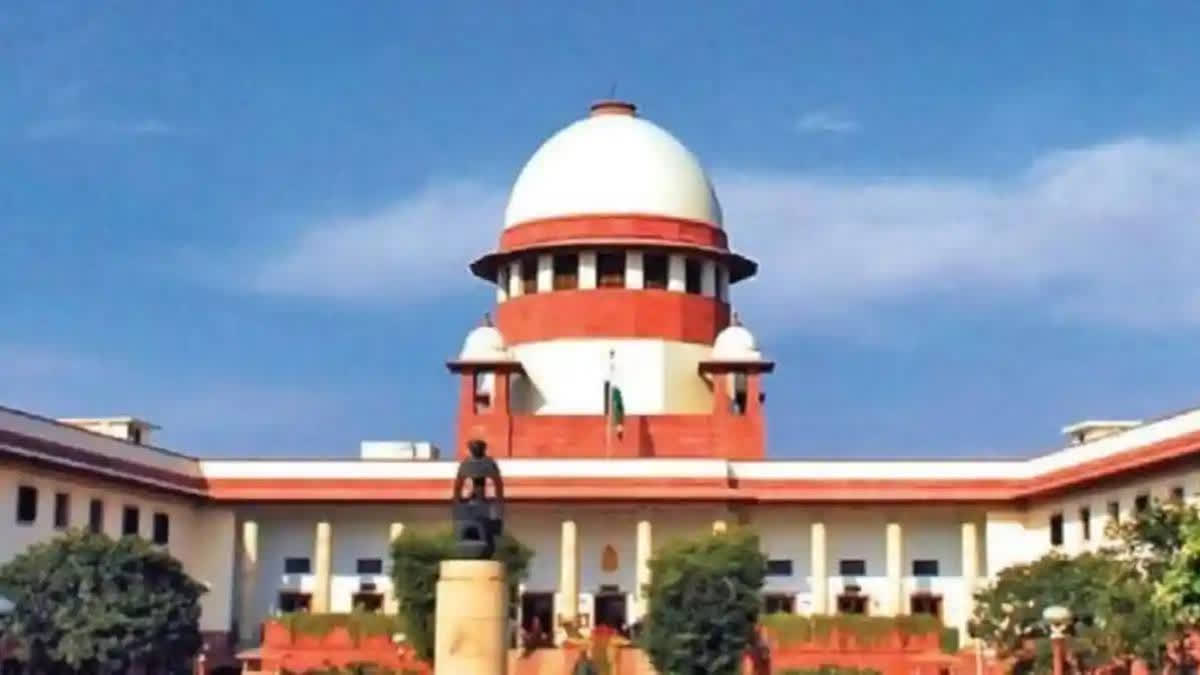New Delhi: The Supreme Court on Tuesday said that the District Collectors should appear before the Enforcement Directorate and those who have been summoned by the ED are required to respect and respond to the summonses. The apex court stayed the Madras High Court order, which granted an interim stay on the summons issued by the ED against the District Collectors.
A bench comprising justices Bela M Trivedi and Pankaj Mithal said a very strange and unusual writ petition has been filed by the state of Tamil Nadu, along with an additional chief secretary, District Collectors against the ED, which would indirectly stall or detail the investigation being made by the ED based on FIRs registered for offences some of which are scheduled offences under the Prevention of Money Laundering Act (PMLA).
The bench said that prima facie under section 50 of the PMLA, the accused has to respect and respond to the summons issued by the Enforcement Directorate. The apex court said the accused has to appear if called by the ED and produce evidence if needed in accordance with proceedings under PMLA law.
The apex court is likely to take up the matter for further hearing after four weeks. On Monday, the Supreme Court told the Tamil Nadu government counsel that the state or its officers should help the Enforcement Directorate (ED) to find out if any offence is made out against any person and emphasised that the state has to comply with laws enacted by Parliament while continuing to ask why the state is aggrieved in the matter. “If the state machinery is asked to help, what is the prejudice caused?”, the apex court told the state government counsel.
A bench comprising justices Bela M Trivedi and Pankaj Mithal had asked senior advocate Kapil Sibal and additional advocate general Amit Anand Tiwari, representing the Tamil Nadu government, if the District Collector was aggrieved, he could have moved the court in an individual capacity, and queried, but how is the state aggrieved?
Sibal asked, "Is he (Collector) not part of the state? Justice Trivedi said Under Article 256, of the Constitution, states have to comply with central laws and cited the enactment of the Prevention of Money Laundering Act by Parliament. Sibal said mining is not a scheduled offence.
On February 23, the Supreme Court questioned the Tamil Nadu government challenging summonses issued to five District Collectors by the Enforcement Directorate (ED) in connection with a money-laundering case. The summonses were issued in connection with the ED's probe into an alleged illegal sand mining scam in Tamil Nadu.
On Friday, the apex court asked the Tamil Nadu government counsel, how the state files a writ petition. Under which law and that, too, against ED? Senior advocate Mukul Rohatgi, representing the Tamil Nadu government, had said it could. The bench further queried, how is the state interested and can file such petitions.
The alleged illegal sand mining scam has brought five District Collectors of Tamil Nadu under the scanner, with the ED issuing summons to them. After the state government filed a writ petition challenging the summonses, the ED requested the Supreme Court to halt the interference.
- " class="align-text-top noRightClick twitterSection" data="">
Read more: 'What Is The Prejudice Caused?': SC To Tamil Nadu On ED Summonses To District Collectors



